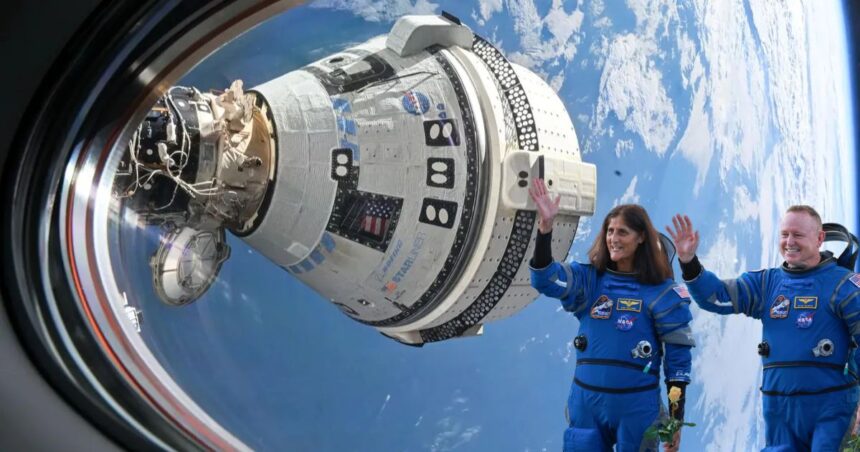Sunita Williams stuck in space is making headlines again. But she is not the first astronaut to face an extended mission. On September 1, 2024, NASA confirmed that Sunita Williams and her colleague Barry Wilmore will stay longer on the International Space Station (ISS) than planned. Their mission was planned for only 8 days, but they will return to Earth in 2025.
Sunita Williams Stuck in Space?
Astronauts Sunita Williams and Barry Wilmore launched on June 5, 2024, to the International Space Station (ISS) aboard Boeing’s Starliner spacecraft. Their mission was only for a short period, but their mission was extended due to helium leaks in the spacecraft. The spacecraft Starliner will return to Earth without any astronauts on September 6, 2024.
This is not the first time that astronauts have extended their mission. Many astronauts have faced similar situations. Extended missions might be boring for astronauts, but according to NASA, such missions help researchers study the effects of long-duration spaceflight on the human body.
The First Record Holder
One of the earliest cases when spaceflight mission was extended was Soviet cosmonaut Sergei Krikalev. He was launched to the Mir space station in May 1991. However, political changes keep him in the Mir space station. Astronaut Sergei Krikalev ended the mission by spending 311 days in space and returned to Earth in March 1992.

The above example was 32 years ago; another recent example is NASA astronaut Frank Rubio. His scheduled return mission was in March 2023. However, a coolant leak in his spacecraft delayed his return home journey. Frank Rubio spent 371 days on his extended mission. Set the new record for the longest single spaceflight by any American.
Benefits of Extended Missions
The duration of the extended mission may be tense for astronauts and their families. Still, NASA believes these mission have capabilities to give us valuable data to understand how the human body adapts to long periods in space. This essential information is important to us for future missions like travel to Mars or beyond.
Extended missions are complete with challenges. Astronauts must face physical and psychological stress. They are mainly away from their families and friends for extended periods. ISS living space is not big like our home bedroom. They live in a confined space, so it can also be mentally torturing.
Astronaut Sunita Williams has spent over 322 days in space across her previous missions. So, nothing new for her in an extended mission. She is just prepared for the new challenges of an extended day.
NASA has assured that Williams and Wilmore are safe. They are working alongside the Expedition 71 crew. Both are conducting science experiments and performing station maintenance work. NASA has also stated that astronauts are enjoying their work in extended days.




